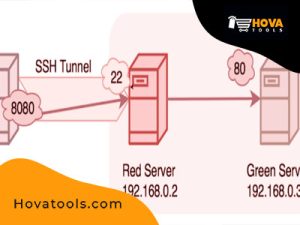Bank Login Protection: How to Keep Your Online Banking Safe
With the increase of online banking, it is more important than ever to protect your bank login information from hackers and cybercriminals. In this article, we will discuss the different ways you can protect your bank login and keep your online banking safe.

Table of Contents
- Introduction
- Why Bank Login Protection Is Important
- Different Types of Bank Login Protection
- Two-factor authentication
- Biometric authentication
- Captcha
- Virtual keyboard
- Best Practices for Bank Login Protection
- Strong passwords
- Regularly change your passwords
- Don’t use public Wi-Fi
- Keep your device and software up to date
- Common Bank Login Scams to Avoid
- Phishing scams
- Malware
- Social engineering
- What to Do If Your Bank Login Information Is Compromised
- Conclusion
- FAQs
Introduction
Online banking has made it easier than ever to manage your finances, but it has also made it easier for cybercriminals to steal your bank login information. In this article, we will discuss different ways you can protect your bank login and keep your online banking safe.
Why Bank Login Protection Is Important
Your bank login information is sensitive and valuable. Cybercriminals can use it to access your account and steal your money. Protecting your bank login information is crucial to prevent identity theft and financial loss.

Different Types of Bank Login Protection
Two-factor authentication
Two-factor authentication (2FA) is an extra layer of security that requires you to provide two forms of identification to log in to your account. This can be something you know (like a password) and something you have (like a code sent to your phone).
Biometric authentication
Biometric authentication uses your unique physical characteristics, such as your fingerprint or facial recognition, to verify your identity. This makes it harder for hackers to access your account even if they have your password.
Captcha
Captcha is a type of challenge-response test used to determine whether or not the user is human. This can prevent automated bots from attempting to log in to your account.
Virtual keyboard
A virtual keyboard is a software-based keyboard that can be used to enter login information. This can help prevent keyloggers from stealing your password.
Bank Login Account for sale
-
- BANK LOGIN
BANK-Chemical Bank logins USA
- $450.00 – $1,300.00
- Select options This product has multiple variants. The options may be chosen on the product page
-
- BANK LOGIN
BANK-FirstBank Holding Co Logins USA
- $450.00 – $950.00
- Select options This product has multiple variants. The options may be chosen on the product page
-
- BANK LOGIN
BANK-MidFirst Bank Login
- $120.00 – $1,200.00
- Select options This product has multiple variants. The options may be chosen on the product page
-
- USA bank Login
BANK-Western Alliance Bank USA
- $150.00 – $450.00
- Select options This product has multiple variants. The options may be chosen on the product page
These are the details we will give you for login and other purposes after you have bought bank account logins.
Username | Password | Security Questions | Answers | Email Access | Holder Name | Number Account | Bank Name | Phone Number | Address | Date | Mother Maiden’s Name | CVV2Username | Password | Security Questions | Answers | Email Access | Holder Name | Number Account | Bank Name | Phone Number | Address | Date | Mother Maiden’s Name | CVV2
Best Practices for Bank Login Protection
Strong passwords
Your password should be complex, long, and unique to your bank account. Avoid using common phrases, personal information, or easily guessable passwords.
Regularly change your passwords
Change your passwords regularly, at least every six months. This can help prevent your account from being compromised if your password is stolen.
Don’t use public Wi-Fi
Public Wi-Fi is often unsecured and can be easily accessed by hackers. Avoid logging in to your bank account on public Wi-Fi.
Keep your device and software up to date
Make sure your device and software are updated regularly to ensure they have the latest security patches and updates.
Common Bank Login Scams to Avoid
Phishing scams
Phishing scams are a type of scam where cybercriminals send emails or texts pretending to be your bank. They may ask for your login information or direct you to a fake website that looks like your bank’s website.
Malware
Malware is a type of software designed to harm your computer or steal your information. Malware can be hidden in emails, attachments, or websites and can steal your bank login information.
Social engineering
Social engineering is a type of scam where cybercriminals use psychological manipulation to trick you into revealing your bank login information. They may impersonate a bank representative or use fake job offers to gain
What to Do If Your Bank Login Information Is Compromised
If you suspect that your bank login information has been compromised, you should take immediate action to protect yourself. Here are some steps you can take:
- Change your password immediately.
- Contact your bank and let them know about the situation.
- Monitor your account for any suspicious activity.
- Consider freezing your credit to prevent identity theft.
Conclusion
Protecting your bank login information is essential to keeping your online banking safe. By using two-factor authentication, biometric authentication, and other security measures, you can make it harder for cybercriminals to access your account. Remember to regularly update your passwords, avoid public Wi-Fi, and be aware of common bank login scams.
Click Buy Instant Western Union Transfer
FAQs
- What is two-factor authentication? Two-factor authentication is an extra layer of security that requires you to provide two forms of identification to log in to your account.
- How can I create a strong password? A strong password should be complex, long, and unique to your bank account. Avoid using common phrases, personal information, or easily guessable passwords.
- Can using public Wi-Fi put my bank login information at risk? Yes, public Wi-Fi is often unsecured and can be easily accessed by hackers. Avoid logging in to your bank account on public Wi-Fi.
- What should I do if I suspect my bank login information has been compromised? If you suspect that your bank login information has been compromised, you should change your password immediately, contact your bank, monitor your account for suspicious activity, and consider freezing your credit to prevent identity theft.
- What are some common bank login scams to watch out for? Phishing scams, malware, and social engineering are all common bank login scams. Be wary of emails or texts that ask for your login information, and avoid clicking on suspicious links or downloading unknown attachments.
Don’t Know How to Use Bank Logins? Buy Instant Money Transfer Services
Contact
We are always available to take your orders 24/7. CONTACT US












